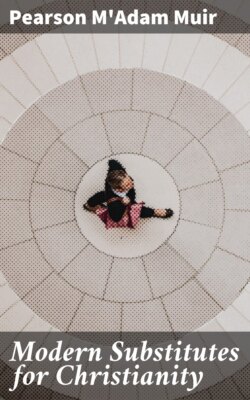Читать книгу Modern Substitutes for Christianity - Pearson M'Adam Muir - Страница 8
На сайте Литреса книга снята с продажи.
II
ОглавлениеThe contrast which so many are drawing between the present and the past is not a little exaggerated. There have been few periods in which Christianity has not been the object of animadversion and attack, in which its speedy downfall has not been confidently predicted. It was two hundred years ago that Dean Swift wrote An Argument to prove that the Abolishing of Christianity in England may, as things now stand, be attended with some Inconveniences, and perhaps not produce those many good effects proposed thereby': the Dean, with scathing sarcasm, ridiculing at once the conventional customs by which Christianity was misrepresented, and the supercilious ignorance which assumed that it was extinct.[10] It was about a quarter of a century later that Bishop Butler, in the advertisement to his Analogy of Religion to the Constitution and Course of Nature, stated, 'It is come, I know not how, to be taken for granted by many persons that Christianity is not so much as a subject of inquiry, but that it is now, at length, discovered to be fictitious. And accordingly they treat it as if, in the present age, this were an agreed point among all people of discernment; and nothing remained but to set it up as a principal subject of mirth and ridicule, as it were, by way of reprisals for its having so long interrupted the pleasures of the world.' And the Bishop drily gave as the aim of the Analogy: 'Thus much, at least, will be here found, not taken for granted but proved, that any reasonable man who will thoroughly consider the matter, may be as much assured as he is of his own being, that it is not, however, so clear a case that there is nothing in it.'
The assumption that Christianity is a thing of the past can hardly be more prevalent now than it was then; and the groundlessness of the assumption then may lead to the conclusion that the assumption is equally groundless now. Since the days of Butler or of Swift, the progress of Christianity has not ceased: its developments of thought and life have been among the most remarkable in its whole career. The exultation over its decay in the twentieth century may possibly be found as premature and as vain as the exultation over its decay in the eighteenth century, or in any of the centuries which have gone before.
